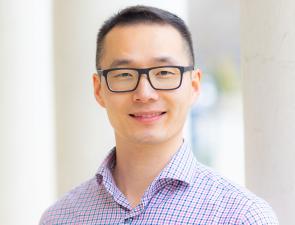Hypersonics
MAE at UVA has over 35 years of experience in hypersonic technology development and hypersonic ground and flight testing. We have 10 faculty that are actively conducting research in hypersonics areas. Our core strengths lie in air-breathing propulsion, combustion, materials, diagnostics, numerical modelling and controls for hypersonic applications. We have contributed to some of the nation’s key hypersonics programs and our research and engineering solutions have been deployed around the world. Much of this research is conducted within the UVA Hypersonics Research Complex that consists of 16 laboratories across 25,000 square-feet of state-of-the-art research space in the School of Engineering and Applied Science. This complex includes our partners in Material Science and Engineering (MSE), Electric and Computer Engineering (ECE) and Systems and Information Engineering (SIE) at UVA. Our research is part of a diverse portfolio that includes funding from industry, NASA, NSF, DOE and DoD. Within DoD we are funded by OSD, DARPA, AFRL, AFOSR, ONR, and other agencies. Our research includes Multidisciplinary University Research Initiatives (MURIs) and other large multi-investigator/multi-institution activities. UVA previously led the National Center for Hypersonic Combined Cycle Propulsion and maintains leadership roles and active research projects with the University Consortium for Applied Hypersonics (UCAH).
Core Faculty

David B. Brown
David’s research group conducts experimental and theoretical studies of energy transport/conversion mechanisms and material properties across multiple length scales and temperature ranges. The primary motivation is the thermal management of hypersonic vehicles, electronic devices, and other engineering systems.

Harsha K. Chelliah
Professor Chelliah is currently serving as the Program Director for Combustion and Fire Systems in the Division of Chemical, Bioengineering, Environmental and Transport Systems at the National Science Foundation (NSF). His research interests are vast and include fundamental investigations on interaction of finite-rate kinetics with transport.
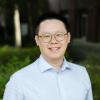
Chen Cui's current research interests are on spacecraft electric propulsion, space environment, and computational plasma physics. Chen Cui's work focuses on the high-fidelity, fully kinetic modeling of plasma dynamics in spacecraft electric propulsion thrusters, solar wind, and other applications related to low-temperature plasmas.

Chloe Dedic
Dedic received her B.S. and Ph.D. degrees from Iowa State University in 2012 and 2017, respectively. After graduation she worked as a visiting scientist with the National Institute of Aerospace at NASA Langley Research Center and joined the University of Virginia as an assistant professor in 2018. Dedic is an active member of the AIAA.

Prior to joining UVA as an Associate Professor in 2012, Dr. Dong was an associate professor of Mechanical Engineering at the Wright State University. He obtained his Ph.D. degree in Aerospace Engineering from UCLA in 2003. After completing his doctorate, he spent three years as a post-doctoral researcher at the George Washington University.

Xinfeng Gao's research is focused on the development of high-performance computing (HPC) computational fluid dynamics (CFD) algorithms for a wide range of applications in aerospace and mechanical engineering, involving shock waves, turbulence, combustion, plasma, and multifluids.

Professor Goyne, after groundbreaking research at his alma mater University of Queensland, Australia, and UVA Engineering, continues his work in hypersonic air-breathing propulsion, supersonic aerodynamics, hypersonic ground and flight test techniques, diagnostic and measurement technique development, controls and advanced manufacturing.

Patrick E. Hopkins
Patrick E. Hopkins is a Whitney Stone Professor in Engineering at the University of Virginia, with a primary appointment in the Department of Mechanical and Aerospace Engineering, and courtesy appointments in the Department of Materials Science and Engineering and the Department of Physics. He is also the director of the ExSiTE Lab.
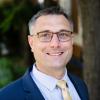
Frank Lagor
Professor Lagor's current research interests focus on estimation and control for autonomous systems interacting with their fluid environments. He received his Ph.D. in aerospace engineering from the University of Maryland in 2017, prior to which he worked for Lockheed Martin Space Systems Company where he was a Certified Principal Engineer.

Eric Loth
Prof. Eric Loth serves as the Rolls-Royce Commonwealth Professor of Engineering. Loth’s current research focuses on extreme-scale wind turbines, energy-storage systems, multiphase flow, and aerospace propulsion.
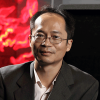
Lin Ma
4D Diagnostics & Thermal-Fluids
Development of novel diagnostics with 4D spatiotemporal resolution to study combustion, propulsion and fluid dynamics

Elizabeth J. Opila
Our research focuses on materials for use in extreme environments and can be applied to materials for use in aircraft engines, rocket engines, energy conversion technologies, and thermal protection systems.
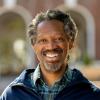
Thomas Ward
Dr. Ward received a B.S. (1998) in Chemical Engineering from Missouri University of Science and Technology with a minor in Applied Mathematics, M.S. (2001) in Chemical Engineering from Stanford University and Ph.D. (2003) in Mechanical Engineering from University of California, Santa Barbara.
